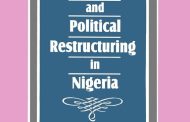The situation on the ground in Nigeria today makes the question of what returning President Buhari should do immediately on arrival an issue beyond the party or cabinet. Nigeria is so divided today that almost nothing good can come out of angry elite and hungry masses. It is beside the point why the elite are angry or whose recklessness brought about the hunger of the masses. The point is that anger and hunger are manifesting in disruptive campaigns. Again, whether the elite appreciate the foolhardiness of unintended consequences in some of these campaigns is out of the question. They clearly do not even remember that similar agitations in 1964/5, 1983 and 1993 each led to a coup. This time, it could lead to something worse than a coup such as a break-up of Nigeria. A violent break-up isn’t the categorical agenda of these forces but there is no guarantee that they can control the chain reactions that some of the agitations can produce.
This is not to say that the government itself has been very rich in imaginative leadership. The sociological analysis informing the governance ideology of Buhari’s second coming failed the singular requirement of a narrative of Nigeria that anticipated and undermined some of the issues that agitators are hanging on to cause confusion today. An uncomplicated conception of corruption worsened the situation by closing much of the space or rooms for manoeuvre for the regime. Whether it is the much talked about cabalistic usurpation of the mandate or the Buhari persona that explains this is different thing. What is clear to all and sundry by now is that, unless the Buhari regime retools and does something striking as soon as the president returns, it will not be farfetched to say that Nigerians will give the government the Jonathan treatment in 2019. That is if 2019 comes, given the stepping up of the blackmailing game that goes by the name of restructuring.
Nigeria’s fate is not a matter about which only the president might worry. The larger part of the headache is his but every Nigerian has a role to play in that, including those whose conception of their cause makes threatening fire and brimstone legitimate in their view. They have a role to play because they have no idea how the tide may turn. The point is that Nigeria must not collapse because the African identity will not survive it. The idea that Africans just can’t organise a functional state will be permanently proved should Nigeria collapse because there is no reason for Nigeria to collapse. After all, what makes a nation? There are no such objective criteria that make a nation. It is neither language, culture, religion, History nor geography. No nation is a product of any such factors other than the powerful imagination called nationalism. Therefore, any racial or national elite that cannot consummate a readymade nation state such as Nigeria as against other circumstances where the elite had to supervise a national liberation war before tasting statehood is just a write off. No excuses!
For that and other similar strategic reasons, the president needs to lead the conversation about the way forward. In addition to whatever might already be his ideas of going about this, including an entertaining expulsion of Hyenas, Jackals and all other political animals in the kingdom called The Presidency in Nigeria, the president might wish to consider the following.
One is for President Buhari not to wait any further before dispensing all partisan considerations in favour of forming a government of national unity involving all major political parties and identifiable voices in the country? This way, he calms the country and sets in motion a much more rigorous and holistic restructuring process devoid of the unproductive and opportunistic bellicosity at work now. If the president chooses people of weight in terms of pedigree, knowledge and popular acceptance, this could turn out his master stroke. On the short run, a conscientious team made up of people who are not seeking to be senators, governors, ministers, ambassadors, contractors and consultants would enable the president to face service delivery and even the anti-corruption war better. On the long run, it takes care of leaving a legacy. As things are now, the president is a legacy risk. Accomplishing a legacy is out of the question when governing a divided country, irrespective of the reason(s) for the division.
Second is for the president to bring to the front burner the security challenge in the northeast. Taking a second look at insecurity in whatever guise – Boko Haram, herdsmen violence and other forms of rural criminality in the area ought now to be an imperative at the highest level of power. What victory could mean in the Boko Haram War needs to be defined again. In all cases, no country can ignore one-third of its territory, particularly as they relate to oil exploration in the Chad Basin, the Mambilla Hydroelectricity project in that axis and even the peace needed for the series of interventions aimed at reconstructing the area. Without dealing with insecurity, none of these can proceed. This is beside the fact of security being one of the three priorities the president has anchored his regime, the other two being the economy/unemployment and fighting corruption.
It is past midterm and two of the three items – security and the economy have yet to score 40%. An economy in recession, whatever that means, cannot be scored 50%. Similarly, a deeply divided country, for whatever reasons, cannot earn the government any marks higher than 35% on security because deep division is the eve of conflict. A government so divided at the highest level over how and who should lead the anti-corruption War bureaucracy cannot also score any meaningful marks thereto. Success in loot recovery will not change this narrative because as soon as Buhari is out of power, it is going to be a war of narratives in which there is no guarantee that he would have the upper hand. Not when all facts are interpretations anyway. So, there is need for the president to rethink things comprehensively and quickly on kick-starting the regime even on the three issues he set out with. All other things considered – presidential health, time available and quality of resource persons, let’s leave it at these two for now.




























